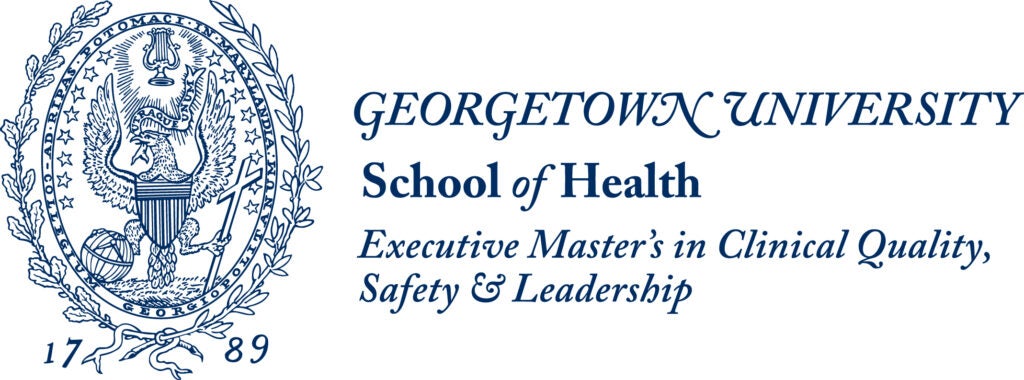School of Health Welcomes The Executive Master’s and Certificate Programs in Clinical Quality, Safety & Leadership

(July 2, 2024) — The School of Health is now home to a premier executive master’s and graduate certificate program for patient safety and quality leadership, developed and launched in 2017 in collaboration with MedStar Health, Georgetown’s academic health system partner.

Georgetown University’s nationally accredited Executive Master’s in Clinical Quality, Safety & Leadership (EM-CQSL) and its companion certificate program, aim to transform motivated healthcare professionals into patient safety and quality leaders through adaptability and reflective lifelong curiosity.
Offered online, the program is designed to develop leaders in the advancement of safety science, quality and communication to lead and train others.
Previously offered through the Biomedical Graduate Education unit, the transition to the School of Health better aligns the program with the expertise and resources available within the School of Health, ensuring an enhanced learning experience for all participants focused in the Jesuit principle of cura personalis. “There are several criteria we consider before transitioning a program to the School of Health. We evaluate program leadership, alumni outcomes, program quality, and market demand. The program was superior in all core areas and is now a part of an academic community with an aligned mission,” says Christopher J. King, PhD, FACHE, Dean, School of Health.
The Executive Master’s program is accredited by the Commission on Accreditation of Healthcare Management Education (CAHME) and represents the real-world environment that healthcare providers and patients encounter daily. Most of the coursework is provided asynchronously through an online learning management system with full-time or part-time enrollment options in Fall or Spring semesters.
The Executive Certificate offers students a working knowledge of the history and fundamentals of patient safety and quality, implementation science, human factors, psychological safety, just culture, and how leadership drives change in the complex healthcare environment.
